Animals
-
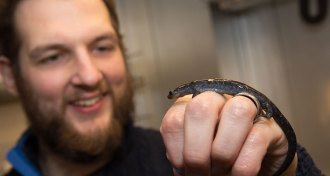 Animals
AnimalsFor some salamanders, finding a mate is a marathon
Small-mouthed salamanders will travel close to nine kilometers on average to mate, a new study finds.
-
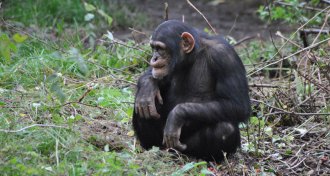 Animals
AnimalsChimps look at behinds the way we look at faces
Humans demonstrate something called the inversion effect when gazing at faces. Chimpanzees do this too — when looking at other chimps’ butts.
-
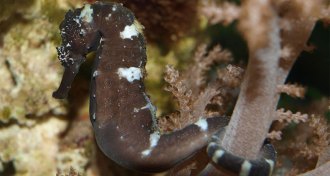 Animals
AnimalsGenome clues help explain the strange life of seahorses
Researchers have decoded the genetic instruction manual of a seahorse (Hippocampus comes) and found clues to its nearly 104-million-year evolutionary history.
-
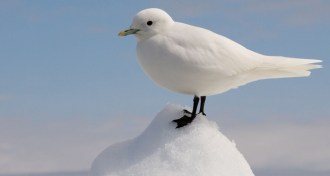 Climate
ClimateYear in review: Sea ice loss will shake up ecosystems
Researchers are studying the complex biological consequences of polar melting and opening Arctic passageways.
By Susan Milius -
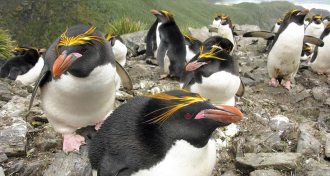 Animals
AnimalsWhy crested penguins lay mismatched eggs
After long migratory swims, crested penguins lay one small and one larger egg.
By Susan Milius -
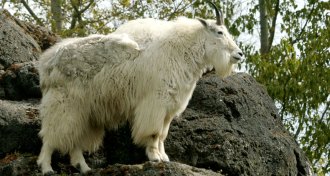 Animals
AnimalsWhy a mountain goat is a better climber than you
For the first time, scientists have analyzed how a mountain goat climbs a cliff. Big muscles in the shoulder and neck help a lot, they find.
-
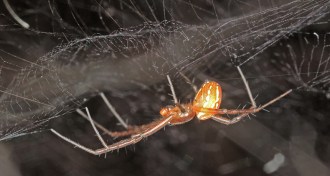 Animals
AnimalsFirst spider superdads discovered
Male spiders first known to give up solitary life for offspring care, often as a single parent.
By Susan Milius -
 Astronomy
AstronomyScientific success depends on finding light in darkness
Editor in chief Eva Emerson discusses using cleverness and persistence to uncover scientific truths.
By Eva Emerson -
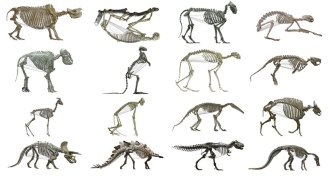 Animals
AnimalsPlant-eating mammals sport bigger bellies than meat eaters
Mammalian plant eaters have bigger torsos than meat eaters, a new analysis confirms, but the same might not have held true for dinosaurs.
-
 Animals
AnimalsAnimals give clues to the origins of human number crunching
Guppies, dogs, chickens, crows, spiders — lots of animals have number sense without knowing numbers.
By Susan Milius -
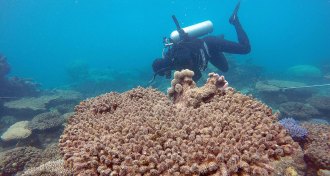 Oceans
OceansCoral die-off in Great Barrier Reef reaches record levels
Bleaching has killed more than two-thirds of corals in some parts of the Great Barrier Reef, scientists have confirmed.
-
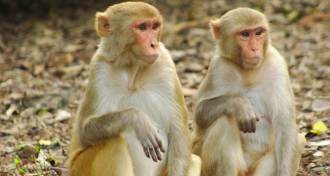 Health & Medicine
Health & MedicineLow social status leads to off-kilter immune system
Low social status tips immune system toward inflammation seen in chronic diseases, a monkey study shows.